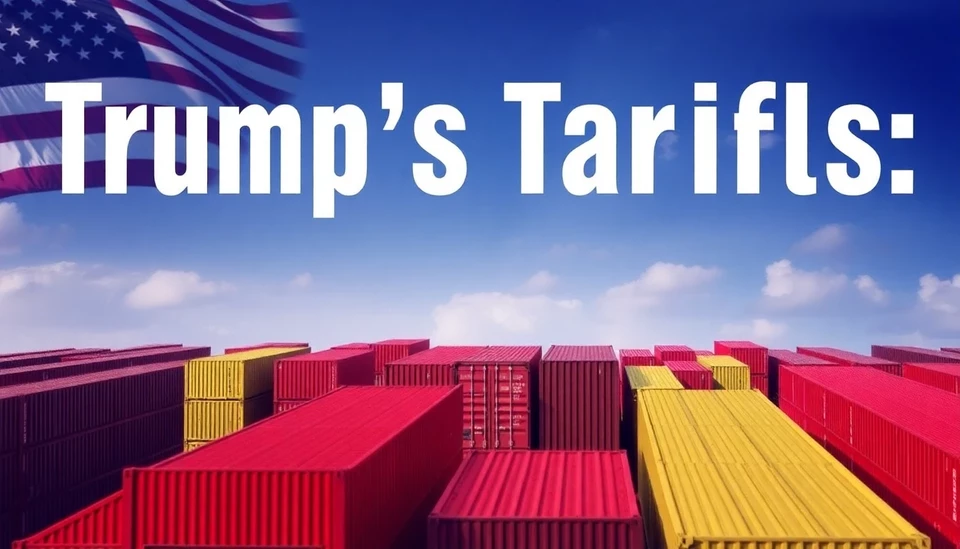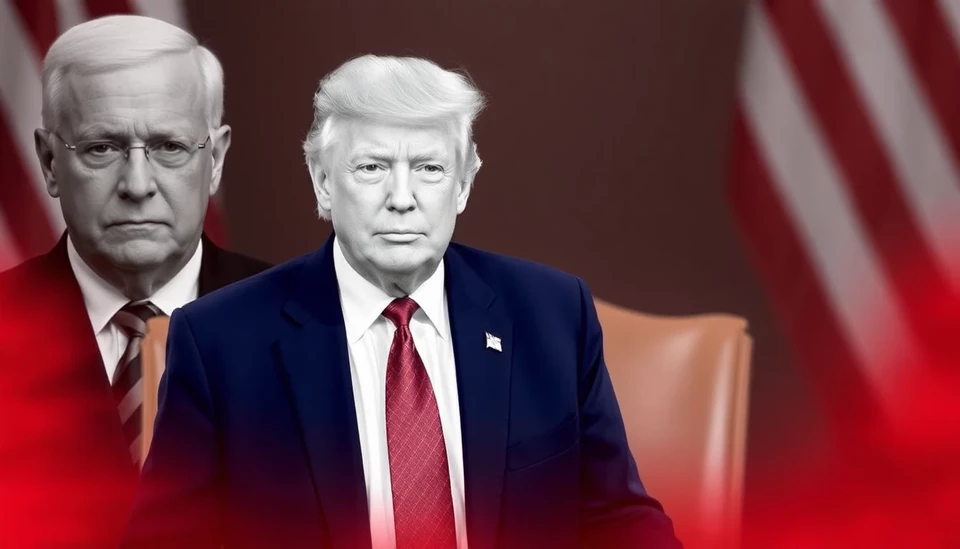
In a bold yet controversial move, former President Donald Trump reintroduced tariffs on a variety of imports, igniting concerns that these trade measures could lead to significant ramifications for the global economy, with projections estimating a potential impact of up to $2 trillion. As discussions around trade intensify, the implications of such tariffs extend far beyond U.S. borders, touching economies worldwide.
Trump's reinstatement of tariffs appears to have been prompted by ongoing tensions with key trading partners, particularly in the wake of an economic recovery that some lawmakers believe has not benefited all sectors equally. The former president argues that these tariffs are crucial for protecting American jobs and industries, particularly in sectors that have struggled due to competition from abroad, such as manufacturing and technology.
Critics, however, are voicing strong opposition to these trade measures, warning that the escalation of tariffs could lead to retaliatory actions from affected countries, spiraling into a trade war that could stifle global trade cooperation. Experts have voiced concerns that the tariffs could lead to increased prices for consumers and businesses alike, contributing to inflationary pressures that have already strained many households around the world.
Since the announcement, markets have reacted with trepidation, reflecting anxiety over the potential disruption of established supply chains and international partnerships that many businesses rely on. According to reports, economists are evaluating the broader implications of these tariffs, with some predicting that the repercussions could lead to a contraction of approximately $2 trillion in global trade, affecting both developed and emerging economies.
The potential hit is expected to manifest more acutely in sectors reliant on international supply chains, such as technology and automotive industries, where many companies operate on thin margins. Tariffs could diminish the competitiveness of these sectors not only in the domestic market but also in global markets, potentially leading to job losses and reduced investment in innovation.
While Trump maintains that these actions are necessary for ensuring America’s economic sovereignty, the debate persists on whether the long-term consequences may outweigh the intended benefits. As countries prepare for potential countermeasures, the global economy braces itself for the possibility of increased uncertainty and volatility in trade relations.
With the world closely monitoring this evolving situation, experts urge policymakers to consider comprehensive strategies that address the underlying issues driving these trade tensions rather than resorting to tariffs that could jeopardize global economic stability.
As the situation develops, it will be crucial for businesses, consumers, and governments to navigate these turbulent waters with a focus on sustainable trade practices that foster growth while mitigating the risks associated with protectionist policies.
For now, the spotlight remains on the administration’s next steps and how the global community will respond to these significant trade actions initiated by Trump.
#TradeWars #TrumpTariffs #GlobalEconomy #Inflation #SupplyChain #Economics #InternationalTrade #TradeTensions
Author: Daniel Foster




